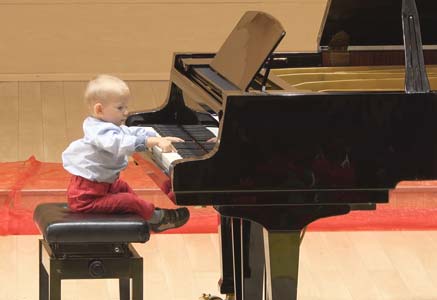Why Professional Horns Are A Terrible Choice for Beginners
By: Richard Maldonado
Lamborghini. Ferrari. Porsche. Certain brands scream “fast” even to people who aren’t auto enthusiasts. They are purpose-built speed machines, finely tuned and meticulously crafted. While there may be exceptions, it would be safe to say that most people would think giving one of these marvels of engineering to a 16-year-old for their first car would be…well, let’s say ill-advised. So why are there people who think that professional level instruments belong in the hands of beginner musicians?
It is easy to think that there is no reason to start on a beginner instrument. Why pay twice right? The problem with this is that it doesn’t consider the full picture. Here are a few reasons why it makes more sense to start on a student instrument.
Cost of Ownership
This doesn’t just mean the initial purchase price. Repairs, repair parts and instrument specific accessories often cost more for a professional instrument. Since higher quality materials are used in the instrument, it would only make sense that the cost to replace these materials would in turn be higher. Pro instruments can be unforgiving of bad maintenance habits, and students are still learning the basics of how to take care of their instrument. This means more trips to the repair shop and each trip can be more costly than it would be with a student instrument.
More Difficult To Maintain
The problem with any finely tuned product is just that, it must be finely tuned and maintained to ensure peak performance. I can’t stress this enough; pros can make just about any instrument play. The opposite isn’t true. The tight tolerances and fine adjustments which give professional instruments their exceptional musicality and tone work against the inexperienced player. Simply put, a beginner doesn’t yet know how to maintain, or work around, an out of adjustment instrument.
More Expressive…But Harder To Play
You want an instrument that will allow you to easily express your musical thought. For some musicians, part of the joy of composition is the deep connection with your instrument, allowing it to become an extension of your musical vision. Beginner musicians simply aren’t at this level yet. They are still learning to get their instrument to make the sound it is supposed to make when it is supposed to make it. All the expressive qualities of a pro instrument can work against a beginner and make it harder for the student to learn.
More Specialized
Many professional models are made with a specific type of music in mind. Are you looking for a lead trumpet or something with a big dark sound? Do you want a jazz horn that’s really lively or something that will blend better in a classical setting? While pro horns can be used in any setting, it’s easy, especially for a beginner, to end up with a horn that excels in one area but may be lacking in another. The student musician needs to learn to blend before they learn to stand out. Buying a specialized instrument too early means that by the time a student knows what they want to do musically, they may find they have entirely the wrong instrument to do it.

Believe it or not, there is such a thing as "too much." Most children aren't ready to start on a professional level instrument.
So, What’s A Better Alternative?

Your child's band director or private lesson teacher will be able to help guide you toward an instrument that is right for your child.
Renting or purchasing a student level instrument will address all of this. Directors, in coordination with their educational sales representatives and fellow directors often have lists of instruments they feel are the best place for your student to start. These instruments are more affordable and are designed specifically with students in mind. They are easier to maintain and provide an outstanding foundation to build on. This approach also lets parents ease into the financial commitment and gauge their child’s continued interest before investing in that step-up instrument. Even better, by starting with a student horn and later stepping up to an intermediate or pro horn, you student will have a backup instrument to play on the marching field or when their step-up horn is in the shop.
So, do yourself and your wallet a favor. Consider skipping the pro horn until your student can be an active participant in telling you what they want and need.



